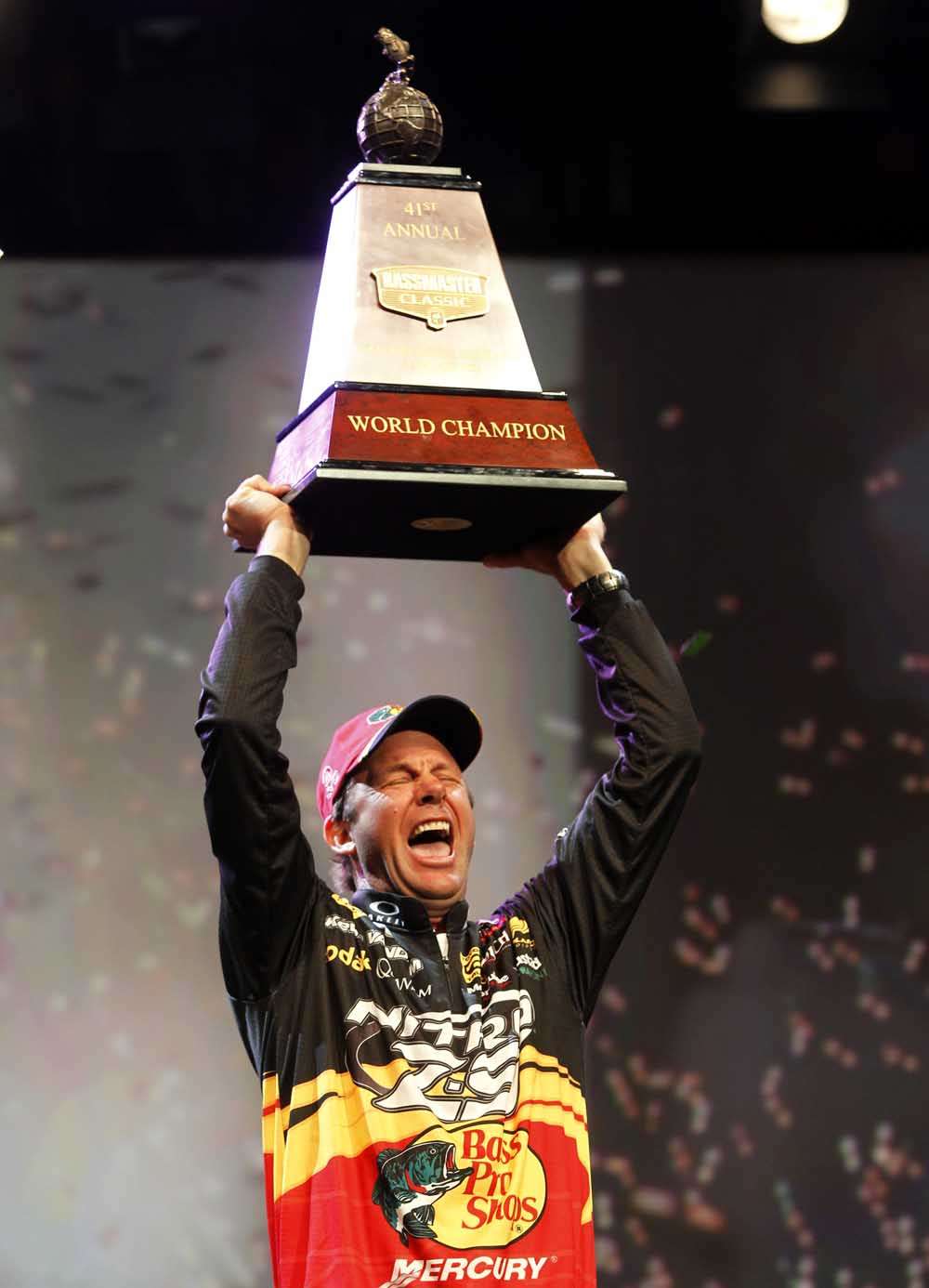
Well, now it's all over but the shoutin' — put up or shut up time. For the first two days we watched the strategy, execution and gamesmanship play out on the water and on the weigh-in stage. In the final round, all that's left is the drama. But even that can be watched with an active and educated eye.
Of course, the Bassmaster Classic is all about winning. There's not much solace to be had from a "good showing" — either in bass fishing history or as a payday. Naturally, Day 3 is all about the winner and the anglers who came close. Here are a few of the things that will separate the two.
Fish management
The Classic is a three-day tournament — not a one-day tournament like the Weekend Series events or a two-day derby like a lot of B.A.S.S. Nation contests or even a four-day challenge like the Elite Series tournaments. And because it's three days, successful competitors must properly "manage" their fish. In a nutshell, that means they need to catch enough each day to stay in the hunt and enough over three days to win.
Burn your fish up on Day 1 and you might take the early lead, but you'll fade on Days 2 and 3. Be too conservative with your fish and you won't be able to break the tape at the end of the race.
It's a fine line.
The winner must not only find enough bass to win, but also effectively manage those fish to get the most weight out of them that he can. Sometimes that means fishing for them only briefly each day and standing guard over a small area the rest of the time. Sometimes it means constantly working to expand a productive pattern throughout an entire fishery.
It always means making the right choice somewhere along that continuum of options.
Crowd control — two ways
On Day 3 there may be twice the number of spectator boats on the water, but there are about half the competitors. Both are significant.
Twice the spectators means more boats following the leaders. By now they've abandoned some of the big names unless those big names have a shot to win. And if an unknown angler has a shot at winning, he's likely got plenty of company.
Unfortunately, the tendency is for only the big names to plan on how they're going to handle the spectators. Kevin VanDam has proven time and again that he's a master at this; he plans for it and every move of the spectators is anticipated, including how they'll enter and leave his primary fishing areas. B.A.S.S. Nation anglers have never had to contend with this before and they get no trial run. It's on-the-job training for them if they're in contention. The advantage they have over KVD is that they don't have to contend with spectators until the final round. They need to use that time to their advantage.
The other aspect of crowd control is field size. The number of competitors will shrink from 55 to 25 on the final day, and that's meaningful. If you've been sharing your water for the first two days and have been strong enough to make the cut, there's a chance that some of the other anglers in your area are headed home. You may have it all to yourself on Sunday, and that can be a big deal in areas that are fishing "small."
Fishing clean
The goal of every tournament angler is to fish "clean." It means that in the competition he lost no fish that struck his baits. It's not to say that every time he set the hook, he put a bass in the boat — even the pros set the hook on mere suspicion sometimes — just that when one was there, it didn't come unhooked or break off.
It seems no tournament is complete without at least one angler telling a tale of woe at the weigh-in, whether it's the story of a giant that inexplicably popped off or a key bass that somehow broke 20-pound line. These stories are sometimes humorous and always tragic. The anglers who tell them all have one thing in common. They lost.
Regrets
Show me a Bassmaster Classic — or any other bass tournament for that matter — and I'll show you a group of anglers who believe they zigged when they should have zagged, fished shallow when they should have gone deep or finessed when they should have flipped and pitched. In their minds, that will have made all the difference and cost them the tournament.
And they're probably right. After all, at this level most of the competition takes place in that reservoir between the ears. Win there, and the on-the-water stuff is easy.
That's particularly true the tournament's a tight one — two pounds or less separating first and second place — you'll hear all sorts of second-guessing and Monday morning quarterbacking. It's the nature of the sport.
The guy with the trophy standing in the middle of all those pyrotechnics and all that confetti may have had some missteps, too. His were just small in comparison, and he'll have forgotten all about them by the time he lifts that trophy over his head.

